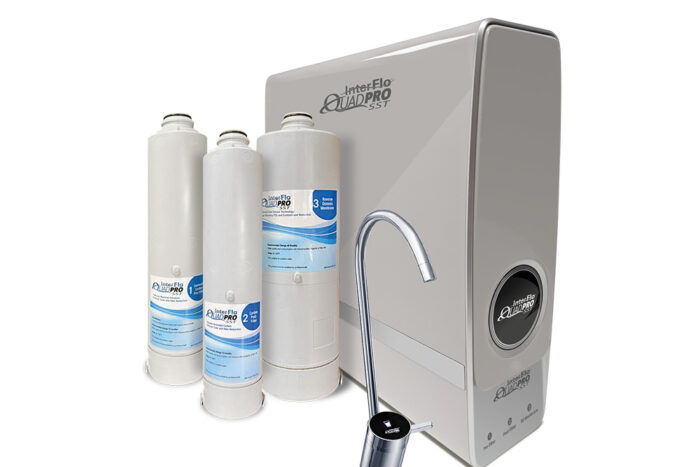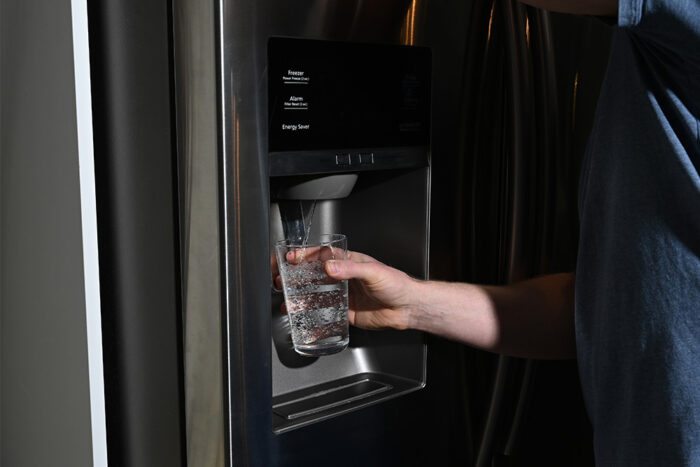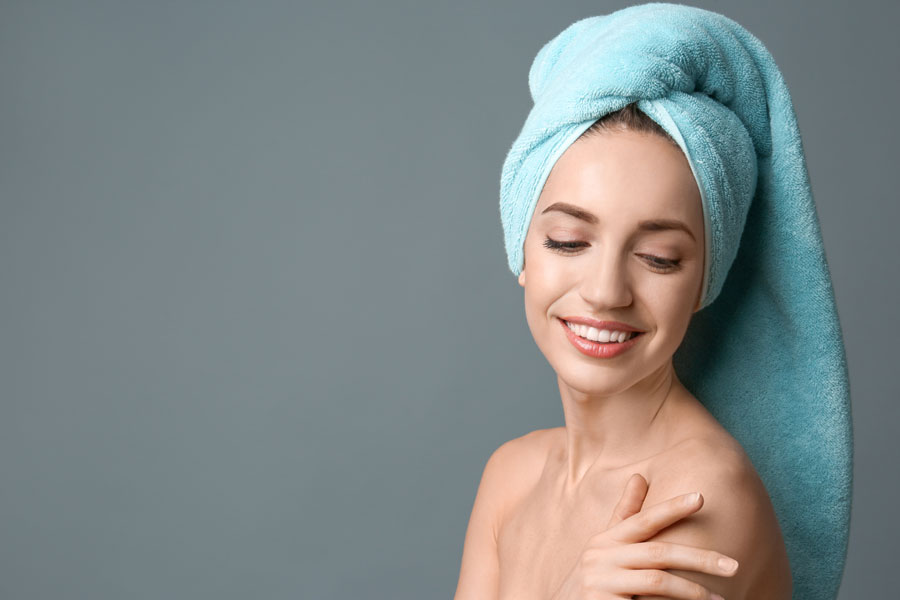The idea of anything being “squeaky clean” sounds pretty good: squeaky clean dishes, squeaky clean kitchen countertops, squeaky clean bathroom tiles, and squeaky clean windows.
What about squeaky clean skin?
Have you ever toweled off after a shower, ran your fingers across your forearm or leg and felt a bit of squeaky friction? The concept of “squeaky clean” may have caused you to assume this meant all the greasy grime that was on your body had been washed away, and now your skin is sparkling.
Unfortunately, nothing could be further from the truth. But, perhaps it’s not your soap’s fault. Have you ever considered your water quality?
The Reality of Bathing in Hard Water
The short explanation is this … the squeaky clean feeling on your skin after a shower actually comes from soap that hard water was unable to wash away. Most bathing products don’t lather or clean well in hard water so soap residue gets left behind on your skin.
Imagine the soap scum you notice building up in your tub or that film that shows up on glass shower doors in need of a good cleaning. That’s what’s stuck to your body.
Squeaky clean skin is a straight-up lie. In fact, it means the exact opposite of what you’ve been led to believe. Your skin isn’t squeaky … it’s sticky. You’re not getting clean because the soap isn’t washing away, just like the soap scum on your tub. And, because it’s still on your body, you may get dry, itchy, flaky skin.
You see, the minerals calcium and magnesium are what make water hard. These hard minerals combine with soap to form what’s often called “curd,” which is just as gross as it sounds. The soap curd sticks to your skin and can clog up your pores and cause irritation. That sticky curd can also lead to brittle, unhealthy hair.
Back in the ‘70s and ‘80s, at least one bath product brand recognized the reality behind hard water and soap. You may remember commercials for Zest deodorant bar that claimed, “You’re not fully clean unless you’re Zest-fully clean.”
Here’s a clip to jog your memory …
The problem with products like Zest is they’re not soap, or at least, there’s more than soap in them. Zest used synthetic detergents to chemically soften hard water as you bathed. In fact, products like this are actually known as Syndet (short for synthetic detergent) bars, although advertising will compare them to regular soap.
Some products, which have the appearance of bath soap, are actually made of ingredients intended to moisturize skin and not necessarily get you clean.
Syndet soaps may not be the most attractive option if you prefer pure and natural bathing products that are free of synthetic ingredients, but there is another option. The best way to improve your showering experience and truly get clean is to remove those hard minerals with a water softener in your home. Then, use whatever bath products you prefer, because soft water is much more effective with all types of soaps and detergents, including household cleaners and laundry products.
Soft Water: Slimy, Slick, or Silky Skin?
People who’ve recently installed a water softener in their home may notice their skin feels different after showering. Some describe it as a slippery feeling while others say their skin feels silky smooth after bathing in softened water.
Sometimes people complain about this sensation because they assume what they’re feeling is bath products that are left behind. Once again … this is the opposite of the truth.
As we’ve already explained, soap scum makes your skin sticky and dry. What you’re actually feeling after washing off with soft water is your body’s natural oils, which it uses to protect and moisturize your skin.
Here’s what the skin health experts at DermaScope have to say:
“The skin needs its own natural lipids to maintain the integrity of its natural moisturizing factor, which keeps sebum production regular and plays an important role in its cell turnover rate. The skin’s natural lipids also help to nourish and support the skin’s microbiome and keep follicles lubricated and soft, which prevents debris and excessive dead cells from accumulating.
There is a common misconception that oily skin causes acne and clogged pores or that oily skin needs to be cleansed more rigorously or more often in order to be clean.”
People who are unaccustomed to soft water say that they rinse and rinse, but the slick feeling won’t go away! That’s because it’s not soap product. It’s the way your skin is supposed to feel.
And now, you’ve been enlightened …
Discover the Bathing Benefits of a Water Softener
If you want better bubble baths and sudsy showers, it’s time to consider a water softener. If you’re tired of hair that’s dull and lifeless, a water softener could be the answer. If you’d love to get clean when you bathe instead of walking around with soap scum on your body, it’s time to talk to your local water treatment expert!
Hard water can cause a lot of other household problems, too. Once you have your water evaluated and the right solution chosen for your home, you’ll wonder why you waited so long to get your own water softener.
Find the right contractor for you.
Recent Homeowner Resources

Are You Drinking Contaminated Water? New Rules Help Homeowners Identify Lead Risks

Introducing InterFlo® QuadPro SST!



